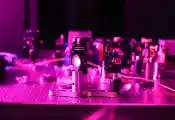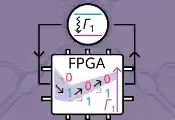Quantum Computing Can Be Made More Efficient for Low-Energy States: Toward Faster Simulation of Quantum Materials
September 25, 2025 -- A research team, including Kaoru Mizuta (a research associate, the University of Tokyo) and Tomotaka Kuwahara (a RIKEN Hakubi Team Leader, RIKEN), has proven that quantum computers can simulate quantum systems much faster than previously thought, specifically for "low-energy states" - the calm, stable configurations that most real-world materials and molecules naturally adopt.
Simulating the dynamics of quantum many-body systems is the central issue in physics and chemistry, where we can fully exploit the power of quantum computers. Current methods treat all quantum systems the same way, requiring enormous computational power even for simple, stable systems. Previous research suggested only modest improvements were possible for low-energy systems, with benefits that disappeared as the system size became larger.
The new work overturns this limitation for Trotterization, which is the most standard quantum algorithm in current and future quantum computers. It mathematically proved that for low-energy systems, computational costs scale with the system's initial energy rather than its total size. This means simulating a calm quantum system requires far fewer computational steps than simulating a chaotic one - sometimes exponentially fewer. The improvement works across all precision levels and applies to a broad range of quantum systems. Since most practical applications in materials science, chemistry, and physics involve low-energy states, this discovery will dramatically accelerate quantum simulations used to develop new drugs, design better batteries, and understand chemical reactions.




































